'The vote-buying capital of the world': In one Appalachian county, election lore lives on
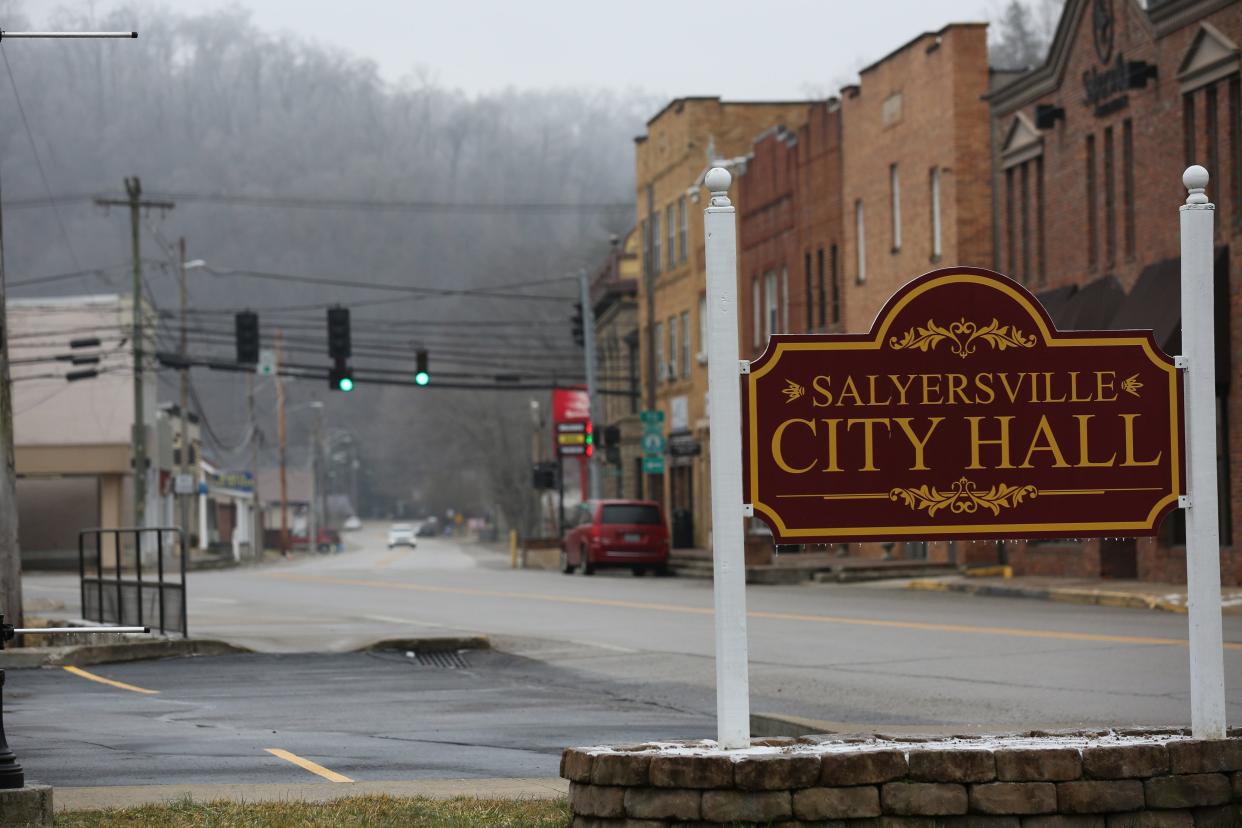
SALYERSVILLE, Ky. – The worries and rumors about vote-buying began swirling once again through the Appalachian hills of this Kentucky coal county last month.
Local election officials saw red flags ahead of the midterms. Among the nearly 11,500 people in Magoffin County, there had been a larger percentage of voters requesting absentee ballots than anywhere else in Kentucky.
Could another vote-buying scheme be brewing?
The worry was not about some national voter-fraud allegation emerging from the dark corners of social media. It had nothing to do with Jan. 6 or election-denying candidates. It was about real, old-fashioned vote-buying.
The suspicion was understandable. For decades, vote-buying in local races flourished in this part of Appalachia. Here, in one of America's poorest regions, an operative was long able to find a voter with an empty cupboard or an overdue mortgage.
Magoffin County, which has a tortured history of vote-buying charges, denials, lawsuits and investigations, became one of the more notorious. In the 1990s, a local attorney dubbed it the "vote-buying capital of the world.”
That’s left behind a deeply rooted lore. Most any resident can reel off stories of how votes were once sold for a wad of cash, a pint of whiskey, a pile of gravel for the driveway or chickens for the coop.
“It's been like that from the beginning of time here,” said James “Pete” Shepherd, the 67-year-old mayor of Salyersville, the county seat. When he ran for the school board decades ago, he said, "people would buy votes with … a half pint of liquor or $25.”
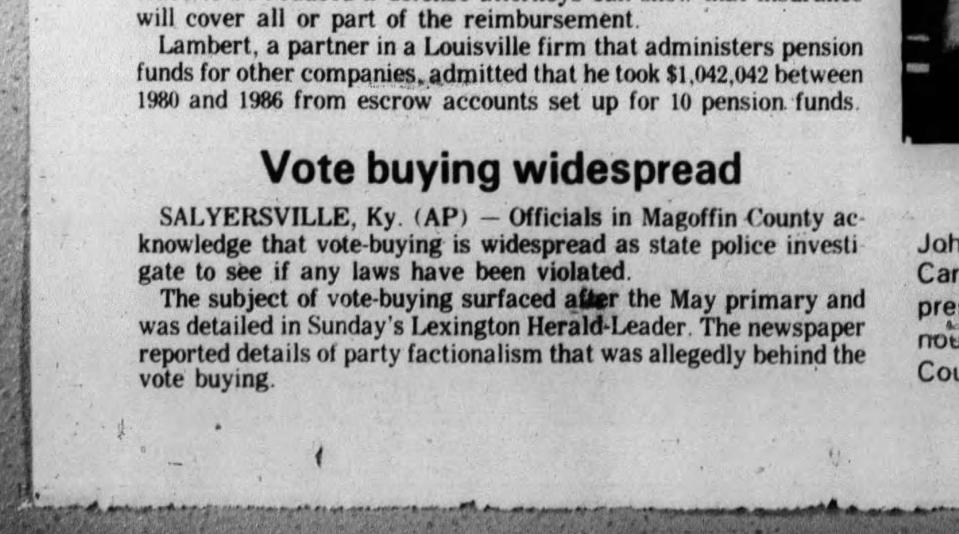
But it’s not just ancient history. As late as 2016, three people were convicted in a vote-buying scheme on behalf of candidates. One witness in the case testified that vote-buying had occurred over a decade.
And while some officials and academics say that the presence of what some call “the float” – the margin that came from bought votes – is now rare, others contend it still happens in some races.
That includes the owner of the Salyersville Independent newspaper, who made headlines ahead of the Nov. 8 elections by offering a $3,000 cash reward for audio or video evidence of vote-buying in hopes of catching perpetrators.
“It’s of my opinion that every election of my 51 years has involved vote buying in Magoffin County, either to a small or very large degree at times, depending on the races involved, the money, the other factors,” Ritt Mortimer told a television station, explaining he was trying to protect democracy.
By Election Day, agents from the Kentucky Attorney General's Office had descended on Magoffin County once again to monitor, hoping their presence would deter any fraud – if it existed.
Some locals remained convinced it wasn’t a question of whether there would be float, but how much.
More: In blue-turned-red West Virginia, voters on both sides head to the polls with a sense of dread
A history of vote-buying
Magoffin County, whose livestock fields and green hillsides sit nearly 100 miles southeast of Lexington, is known in part as the hometown of Hustler porn mogul Larry Flynt, who grew up the son of a tobacco farmer and bootlegger.
It's a place where surnames recur in phone listings, businesses and graveyards: Arnett, Bailey, Howard, Prater, Salyer, Whitaker and Wireman, some of which also appear on land grants awarded for service in the American Revolution, according to one newspaper report.
Over the years, tobacco dwindled along with coal-related jobs. Unemployment numbers gradually went up, and population numbers gradually went down.
Those who stayed faced a hard road. Today, 31% live in poverty. Nearly a quarter of those under 65 have a disability, according to the U.S. Census. Magoffin County last month had the state’s highest unemployment rate, at 8.9%.
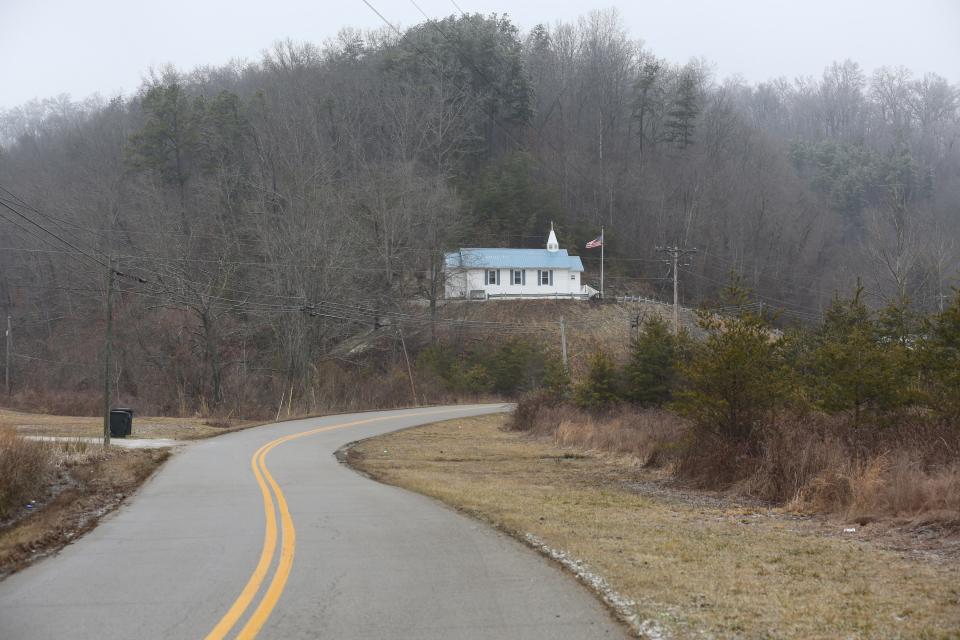
Despite its mix of Democratic and Republican voters, it’s a conservative place: 77% voted for Donald Trump in 2020, and in 2004, 94% voted for a constitutional amendment outlawing same-sex marriage.
But it's not those kinds of votes that were once bought and sold in Salyersville.
Inside Parkway Gun and Pawn Shop, Rondal Benton, a county resident, stood talking with the store owner at the counter, the Ten Commandments posted on the wall, and racks of guns and electric guitars nearby.
At age 50, he said he wasn't surprised by the rumors. He had long heard stories from old-timers about people selling votes, starting a century ago and continuing for decades, for about anything – chickens, gas money, cash or whiskey.
Vote-buying was still openly visible in 1987, when one reporter saw man handing out a fistful of $5 and $10 bills near a polling place while “floaters,” or people willing to sell their votes to the highest bidder, waited for the price to rise, according to a 2016 Kentucky Center for Investigative Reporting article by R.G. Dunlop, who was among the reporters who investigated vote-buying in 1987 for the Louisville Courier Journal.
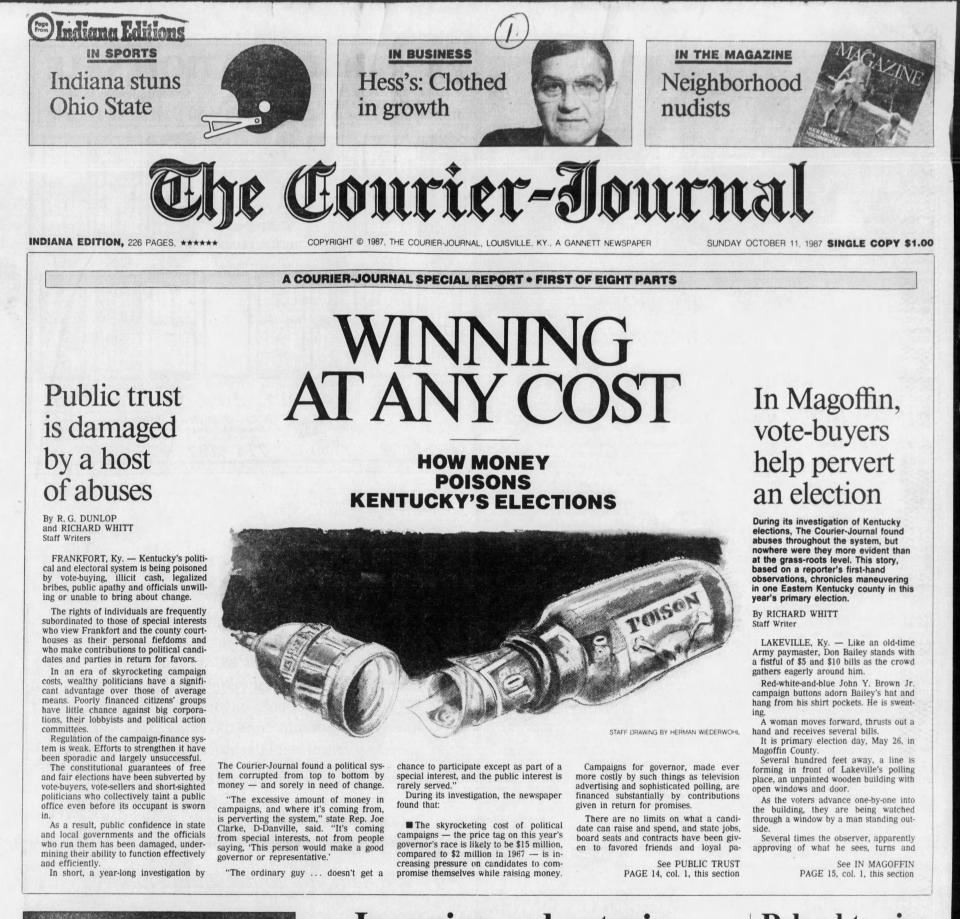
Two years later, in a sign of how ingrained the practice had become, one resident testified in a vote-buying case that he and his wife had accepted $100 for a vote, the newspaper reported.
"They just gave us some money after it was over," he said, adding later, "I won't vote without money."
Instances of reported fraud and state investigations continued into the 1990s and beyond.
Over time, tighter election laws made tampering with cast ballots difficult. But absentee ballots presented a less risky route to an old crime. If a ballot could be mailed in advance, it could be bought in advance – out of sight of the election system.
And winning local seats still could carry the power of patronage in a region where jobs were scarce, and where government and schools were often major employers.
In 2011, a former Magoffin County board of elections member was convicted on vote-buying charges during the county's 2010 general election. Prosecutors said he paid $100 to each voter who brought their absentee ballot.
In 2016, a former magistrate, deputy county clerk and another resident were convicted of conspiring to buy votes on behalf of a slate of candidates in the 2014 election. Witnesses said they were paid $50 to vote for those candidates.
Election officials say such cases most commonly occurred in local races or primaries with low voter turnout. With races sometimes decided by dozens of votes, it didn't take many bought votes, or much money, to tip a race.
"Fifty could swing it easy," Mayor Shepherd said of bought votes.
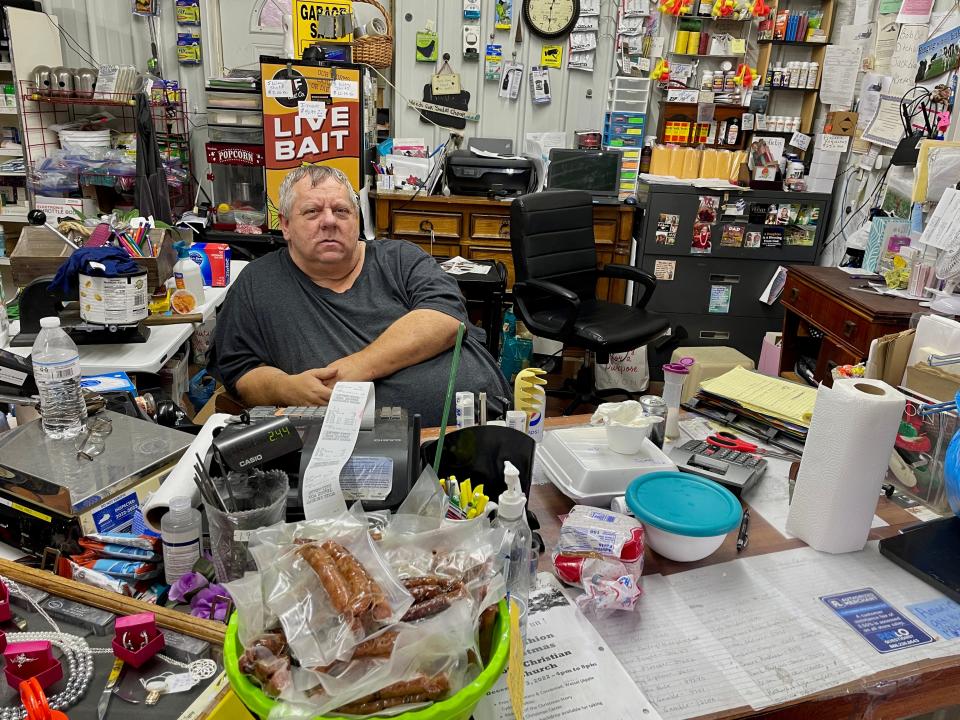
Kenneth “Poor Boy” Williams, eating lunch in his Saylervsville store, Poor Boy's Produce, which sells everything from chirping birds to farm supplies, said he's not sure whether vote bribes still happen. But for a time, some people wouldn't vote without it.
"Years and years ago, if they didn't get a load of gravel on their driveway, they didn't vote," he said.
Magoffin wasn’t alone in the region. In nearby Clay County, eight people including a former judge, a school superintendent and an election official were convicted in 2010 in a scheme to buy or steal votes in 2002, 2004 and 2006.
The motivation, according to prosecutors, was the control of both politics and a supply of jobs in the school and court system.
“Today they're cracking down on that," said Benton, who said he has never participated in vote selling.
Last month, all of that history was on the mind of Magoffin County election board member Justin Williams, who is also the pastor of Lakeville Baptist Church, near the Licking River.
He'd previously preached against vote-buying and worked to get candidates to sign a pledge to avoid vote-buying.
Williams said that when he saw the county’s percentage of requested absentee ballots from Magoffin – 7.56% versus an average of 2.3% for all counties, according to an Oct. 26 tweet from the secretary of state – it was a potential “red flag” for fraud in a place that remains vulnerable to it.
“It burdens me because it preys on the poor in our community and uses them for nothing more than a vote,” he said. “For a husband and wife, if they're willing to sell their vote for $100 apiece, you know, that's $200. If you live on a fixed income, that could be a sixth of your monthly income.”
Election Day brings scrutiny
On Nov. 8, with the nation on edge in an era of Trump-inspired election deniers, Anthony Fannin, an investigator for the Attorney General’s Office, was in Magoffin County with other law enforcement officials.
“We blanketed Magoffin County pretty heavily just because of some allegations over the years, just to kind of keep it honest," he said.
They monitored absentee ballot counting and precinct voting, including one where alleged improprieties had previously occurred. They visited some voters who had requested absentee ballots, saying they would be out of the county. Several turned out to be home.
At the board of elections, Williams said a handful of absentee ballots from different households were rejected because the signature didn't match that of the voters' signatures on file and appeared to have been all signed by the same person.
Michael Adams, Kentucky’s secretary of state, said more than a week after the election that he wasn’t yet aware of any evidence of vote-buying that had emerged n Magoffin County.
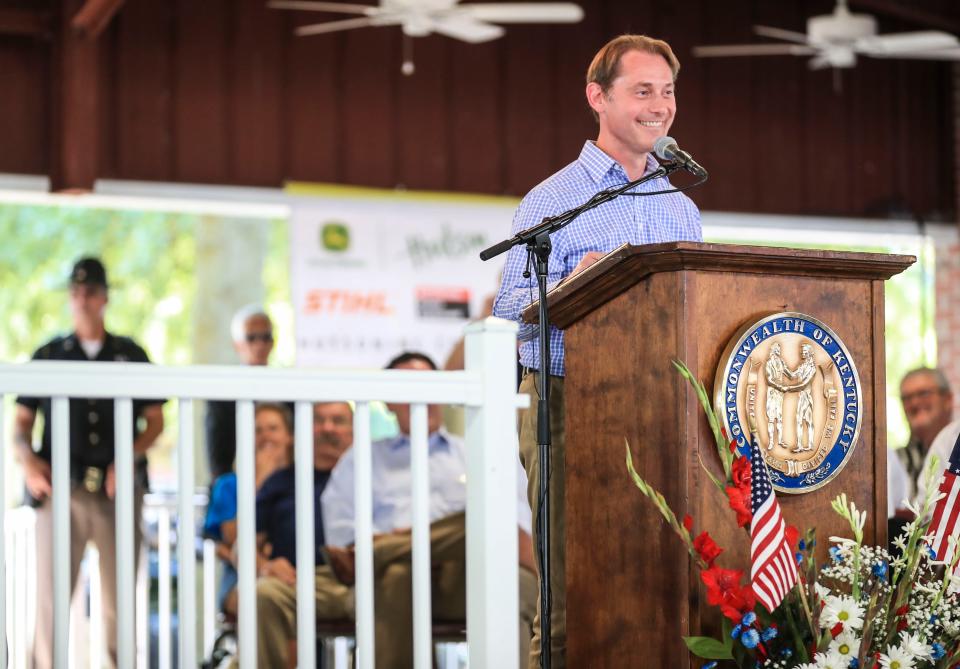
"If it is (occurring), I want to know about it. I want people to tell us," he said.
A spokeswoman for the attorney general’s office said it was part of an “ongoing investigation" and couldn't comment. The state listing of election complaints shows calls alleging vote-buying in five counties – but not Magoffin.
Fannin said vote-buying enforcement in the region can be challenging.
"The problem is, when you have people that have been doing it for decades, they know how not to get in trouble," he said.
Economically vulnerable sellers, meanwhile, value the money
"Every election, they know that's money before Christmas they get," Fannin said.
After the Nov. 8 election, the newspaper reward went unclaimed.
That doesn't surprise Shepherd, the mayor, who said ferreting out anyone who helps to buy votes will require someone to “squeal.”
“These guys don't talk," he said. "Even for $3,000, they don't talk."
In the Salyersville mayor's race, Shepherd lost by 10 votes to his opponent, former Mayor Stanley Howard, the Independent reported. But the race is being contested in a lawsuit that Shepherd filed against Howard, alleging he was ineligible to run because he lives just outside city limits.
Shepherd said he doesn't buy votes nor condone it. He suspects, but can't prove, however, that vote-buying is still present in some elections or races.
"Everybody knows it goes on," he said. “Hell, it’s just a fact of life here."
But Howard, 57, who held several prior terms as mayor, said he hasn’t heard about vote-buying in years and never participated in it.
“It’s just died out. It’s gone away,” he said. “People just say it’s going on, but it’s just rumors out there."
'It's very uncommon'
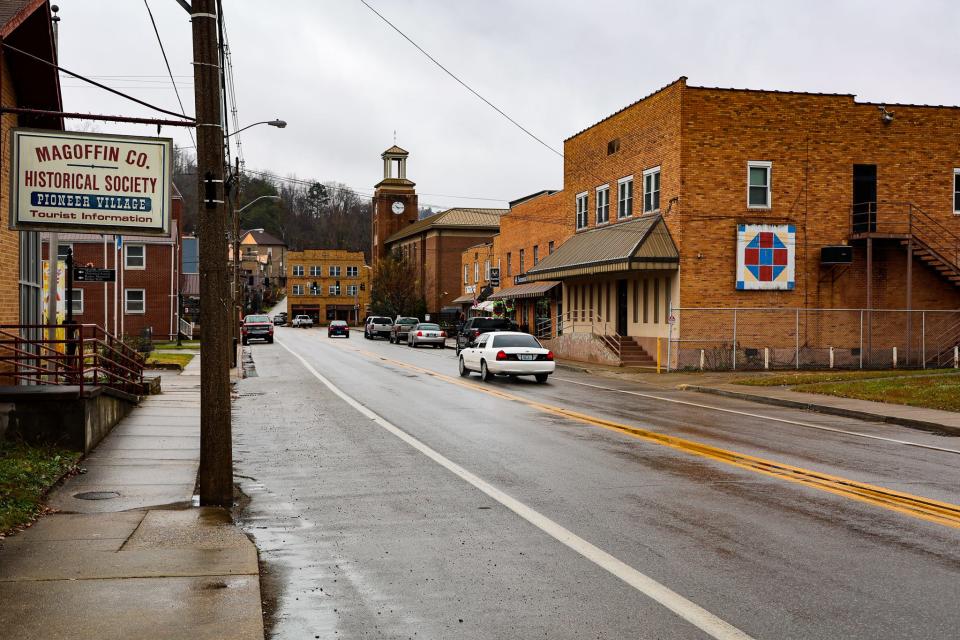
Joshua Douglas, a University of Kentucky law professor who studies election law and voting rights, said he believes such instances are rare.
“There’s sort of folklore that says vote-buying is persistent in eastern Kentucky,” he said. “I think these instances are isolated. Although they do exist, I think it’s very uncommon.”
Before Adams was inaugurated as secretary of state in 2020, he said he found fewer than two dozen convictions for different kinds of vote fraud in the past couple of decades.
In all of 2020, he said, only one possible case emerged out of 3 million votes cast. It was a man who mailed an absentee ballot and voted in person. A grand jury dismissed it, finding it to be an innocent mistake.
While vote-buying may happen, Adams said, ultimately in some Appalachian areas "this is not an election problem. It's a poverty problem. And as long as people can make it easy, quick buck, then you're going to have this happening out there."
Fannin, who has assisted in elections for nearly a decade, said vote-buying allegations are almost never an issue in national or presidential races.
In Magoffin County, the talk of vote-buying and its history might seem to make people more willing to buy into Trump’s unproven “stolen election” claims, some local officials said. But for some, it's done the opposite – highlighting the improbability of large-scale state and national election-tilting fraud going undetected.
“For that to happen nationally, I mean, everybody's gotta be in on it," Justin Williams said. "There's just no feasible way that that is even possible.”
Chris Kenning is a national writer. On Twitter: @chris_kenning.
More storytelling from USA TODAY
Abortion: Amid growing 'abortion deserts,' a haven in small-town Illinois takes shape
Political theater vs. daily survival: Inside the dire situation facing migrants bused across US
Surviving COVID: At 46, she was ready for her next triathlon. Then she caught COVID. Would she ever run again?
This article originally appeared on USA TODAY: How a legacy of vote-buying haunts elections in this Kentucky county

